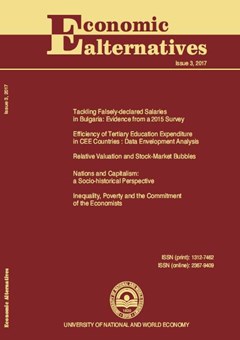Tackling Falsely-Declared Salaries in Bulgaria: Evidence from a 2015 Survey
Authors: Colin C Williams, Junhong Yang
Abstract
Recently, there has been growing interest in the illegal wage practice where formal employers pay their formal employees two wages, namely an official declared wage plus an additional undeclared (envelope) wage, which reduces the tax and social contributions that are paid to the authorities. The aim of this paper is to evaluate the prevalence and nature of this illegal practice in Bulgaria and the effectiveness of different policy approaches for tackling this practice. Until now, two competing policy approaches have been advocated, namely a conventional rational economic actor approach which seeks to increase the perceived or actual penalties and probability of being caught, and an emergent social actor approach that seeks to improve tax morale. Reporting a 2015 nationally representative survey comprising 2,004 face-to-face interviews conducted in Bulgaria, the finding is that just under 1 in 7 formal employees (14.4 per cent) reported receiving an additional undeclared (envelope) wage from their formal employer, with the mean amount of their net income unreported amounting to 29.8 percent. Contrary to the widely-held assumption that this illegal wage practice is always purely the decision of employers, a key finding is that this is the case in less than two-thirds (65.3 per cent) of reported cases. Employees in some one-third of cases asserted that it was either a joint idea or that they had suggested this illegal arrangement. Adopting an evidence-based approach to evaluating how this should be tackled, a logit marginal effects regression analysis reveals little support for the rational economic actor approach that seeks to reduce falselydeclared salaries by increasing the penalties and probability of being caught, but strong support for the social actor approach that decreases instances of falsely-declared salaries by improving tax morale. The paper concludes by discussing implications for theory and policy.

